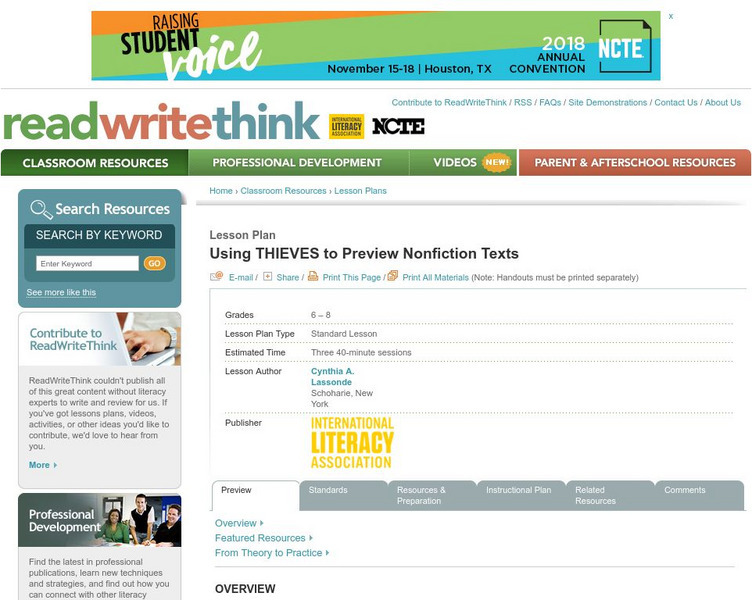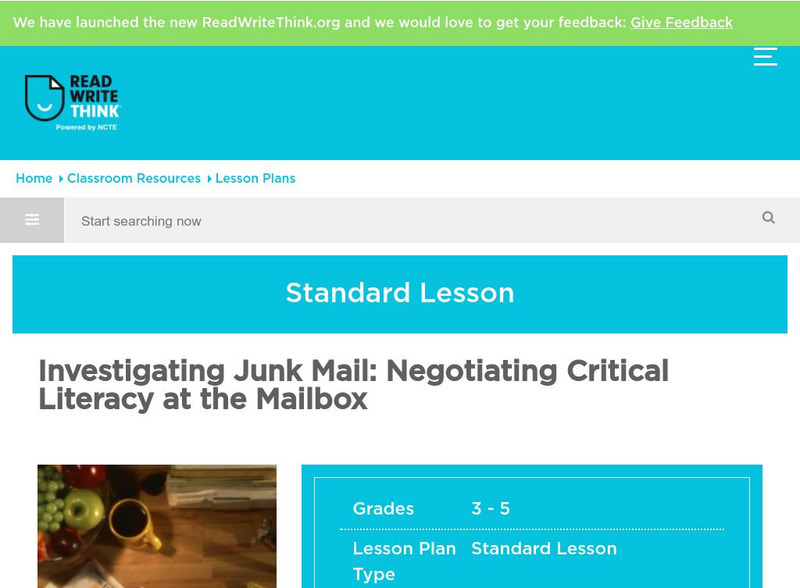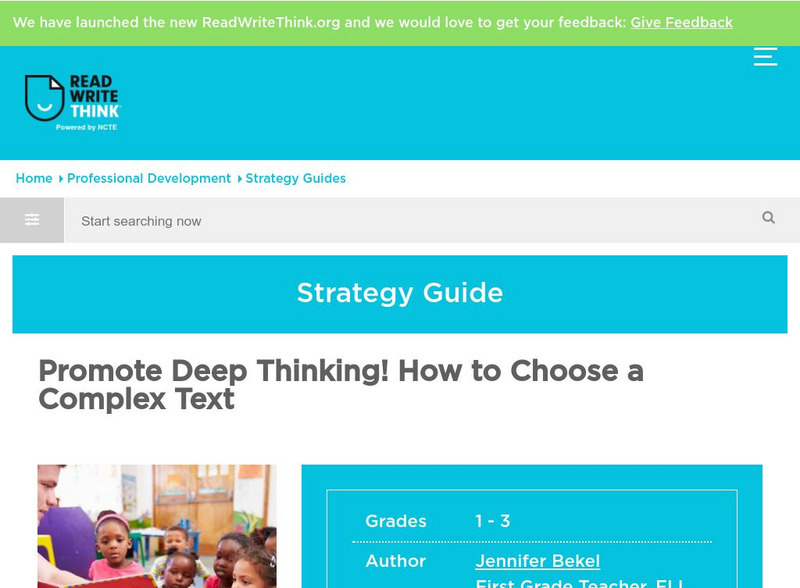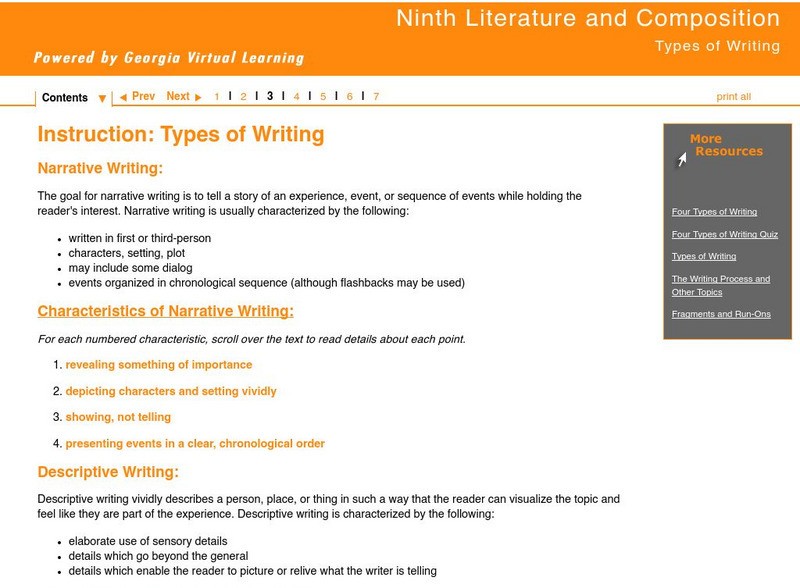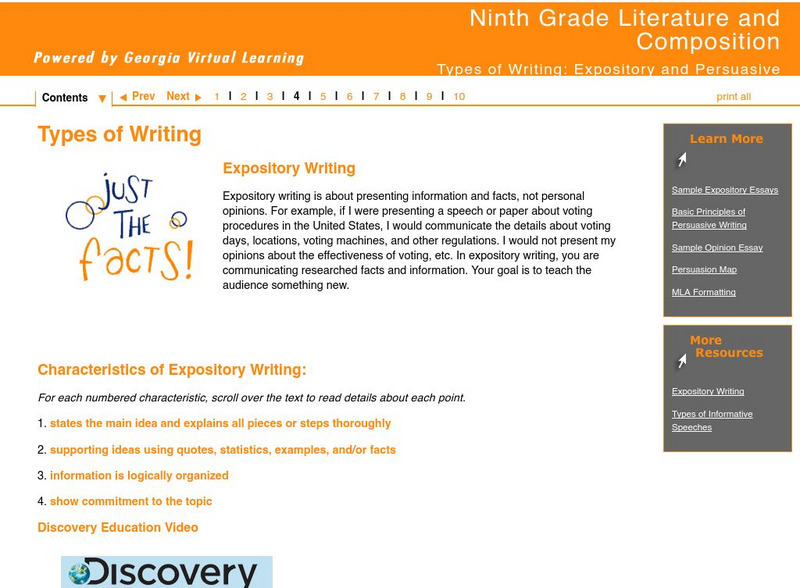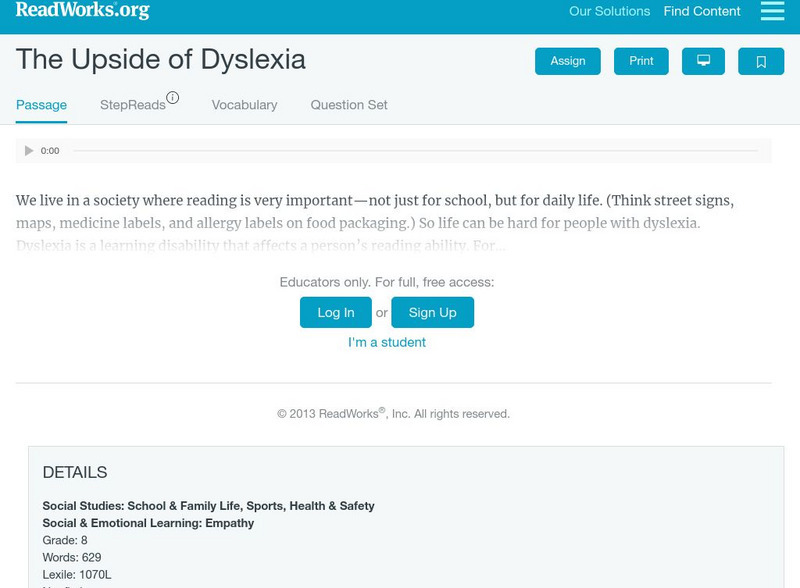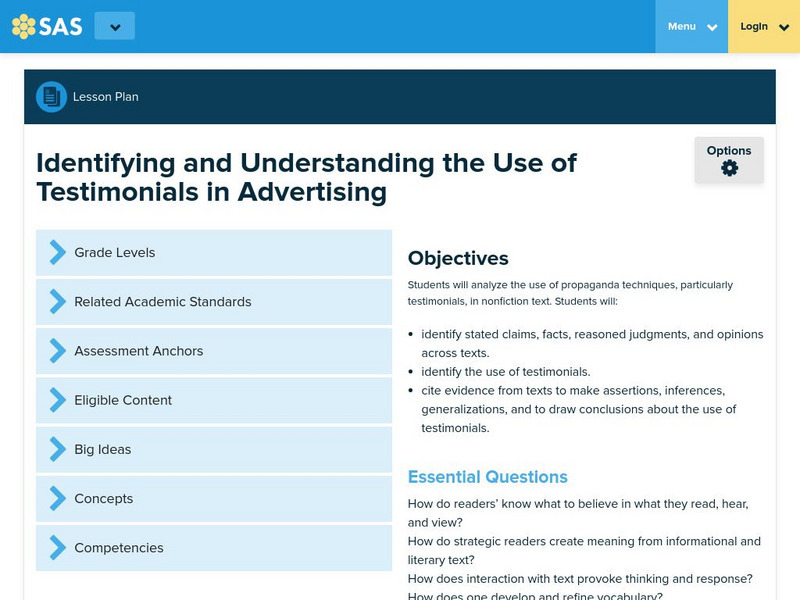Scholastic
Pilgrim and Wampanoag Daily Life
A lesson looks at the Pilgrims and Wampanoag tribe during the first Thanksgiving. Scholars compare and contrast information presented by an online activity then discuss their findings. Learners examine the two group's daily routines and...
Scholastic
The First Thanksgiving Feast
Following an online activity, scholars listen to a read-aloud of If You Were at the First Thanksgiving by Anne Kamma. Pupils discuss their family traditions and complete a T-chart comparing the holiday then and now. Collages are made to...
Judicial Branch of California
Faces of Citizenship: Jury Duty
An interesting middle school lesson focuses on the rights and responsibilities of citizens. Academics choose a civic project to complete, such as an oral history or photo essay. They then conduct interviews with members of the community...
Judicial Branch of California
The Constitution: What It Says and What It Means
Learners get the chance to act as representatives to the Constitution Convention, and must decide whether or not to recommend your state ratify the new framework. After examining the Constitution line-by-line, they consider their...
Teaching Tolerance
Using Photographs to Teach Social Justice | Legal Action: The Supreme Court
A social justice lesson focuses on the Supreme Court case Loving v. Virginia which struck down laws that prohibited marriages between African Americans and white Americans. The lesson begins with class members examining a photograph of...
Anti-Defamation League
10 Ideas for Teaching Black History Month
Celebrate Black History Month with the help of 10 ideas that delve deep into the history, major events, contributions, famous African Americans, and sheds light on how scholars today can take a proactive stance on current civil rights...
PBS
The March on Washington and Its Impact
High schoolers read Martin Luther King, Jr's speech that he gave in Washington. They identify the social conditions that led to the civil rights movement. They discuss the significance of the March on Washington.
Scholastic
Scholastic: News Writing With Scholastic Editors
An excellent site for learning about news writing. This site is an in-depth workshop that takes you through the news writing process step by step by providing examples and tips.
Polk Brothers Foundation Center for Urban Education at DePaul University
De Paul University: Center for Urban Education: History Thinker: Analyze Then Summarize [Pdf]
This Center for Urban Education resource provides a downloadable worksheet. Students will read about a historical event and answer scaffolded questions that will help them retell what happened, explain the causes and effects, and then...
ReadWriteThink
Read Write Think: Using Thieves to Preview Nonfiction Texts
Contains plans for three lessons that introduce a nonfiction prereading strategy with the acronym THIEVES, which stands for Title, Headings, Introduction, Every first sentence, Visuals and vocabulary, End Questions, and Summary. In...
ReadWriteThink
Read Write Think: Expository Escapade: Detective's Handbook
Working on higher-level thinking skills with your readers is made easier with this lesson. You will have your students connect with and analyze a mystery story at their grade-appropriate level. Lesson plan, printable worksheets, and...
ReadWriteThink
Read Write Think: Playing With Genre Through Newspapers and Short Stories
Contains plans for three lessons that ask students to compare narrative writing (short stories) to expository writing (news articles) in order to understand what makes each genre unique. In addition to objectives and standards, this...
ReadWriteThink
Read Write Think: Junk Mail: Negotiating Critical Literacy at the Mailbox
Contains plans for three lessons that teach young scholars to examine junk mail critically. In addition to objectives and standards, this instructional plan contains links to sites used in the lessons as well as assessment and reflection...
New Zealand Ministry of Education
Nz Ministry of Education: Logging Up Reading Mileage
Students will select and enjoy their own range of contemporary and historical texts, display a knowledge of different genre and their particular content, and identify literary aspects of chosen texts for sustained silent reading. They...
ReadWriteThink
Read Write Think: Promote Deep Thinking! How to Choose a Complex Text
This is a strategy guide to determine if reading material is complex and therefore, worth a close reading. It offers a list of quantitative, qualitative, reader characteristics/task consideration measures of text complexity.
Other
Academic Reading: Sample Task [Pdf]
This Academic Reading task provides a practice assessment for identifying headings and subheadings. In the task, students must read the selection and then determine the best subheading for each of the sections.
Other
Introducing Plain Language
This site by Plain Language Online states that plain language "begins with the needs of the reader," which will determine why and how the writer writes. It goes on to elaborate on audience and purpose, idea organization, use of...
Georgia Department of Education
Ga Virtual Learning: Ninth Literature and Composition: Types of Writing: Review
This lesson is a review of the unit on types of writing including purpose, audience, tone, the writing process, the four types of writing, and sentence fragments and run-ons. A quiz is provided.
Georgia Department of Education
Ga Virtual Learning: Types of Writing: Expository and Persuasive
This lesson introduces two types of writing: expository and persuasive. It defines and provides examples of each kind. It offers links to MLA Formatting and Style Guide and sample papers of opinion and exository essays.
Georgia Department of Education
Ga Virtual Learning: Types of Writing: Expository Writing
This lesson focuses on expository writing including definition and characteristics. It provides links to the Discovery Education video: "An Unsinkable Essay," "Expository Essays," "What is Expository Writing?" "Types of Informative...
Georgia Department of Education
Ga Virtual Learning: Rhetorical Landscape: Editorials
This lesson focuses on editorials including understanding their purpose and analyzing them. It provides links to analyzing an editorial handout, "Writing an Editorial" tutorial, and "PBS NewHour: Student Voice" essays.
Read Works
Read Works: Passages: The Upside of Dyslexia
[Free Registration/Login Required] Students read a nonfiction text about dyslexia and the difficulties and successes it brings and answer questions about comprehension, supporting details, vocabulary, transitions, and more. The text is...
Other
Pde: Sas: Identifying and Understanding Use of Testimonials in Advertising
In this lesson, 8th graders analyze and compare the propaganda techniques used in informational texts, with a particular focus on the use of testimonials. Includes links to recommended resources, scaffolding suggestions, and an...
Sophia Learning
Sophia: Analytical Papers: Organization
This slideshow tutorial focuses on organizing an analytical paper; it defines analysis and outlines the basic five- paragraph essay format. It discusses what goes into the introduction, the body paragraphs, and the conclusion. It...





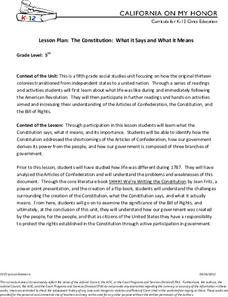




![De Paul University: Center for Urban Education: History Thinker: Analyze Then Summarize [Pdf] Unknown Type De Paul University: Center for Urban Education: History Thinker: Analyze Then Summarize [Pdf] Unknown Type](https://d15y2dacu3jp90.cloudfront.net/images/attachment_defaults/resource/large/FPO-knovation.png)
